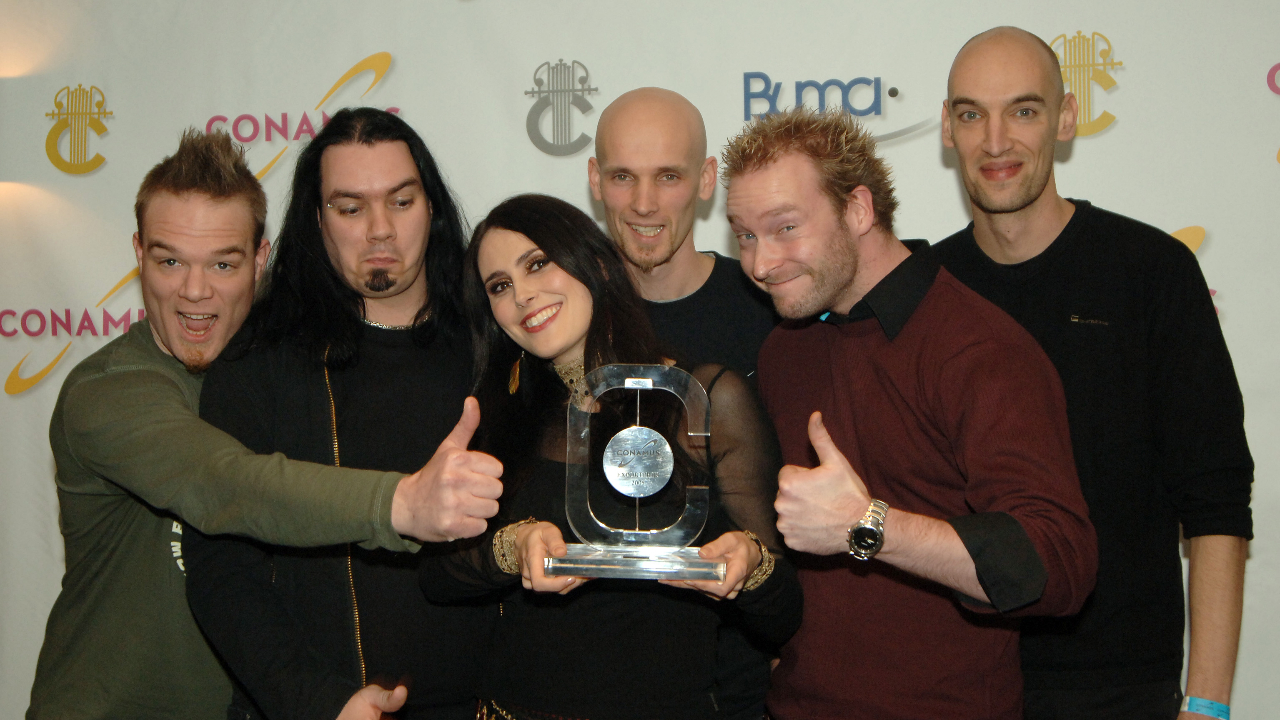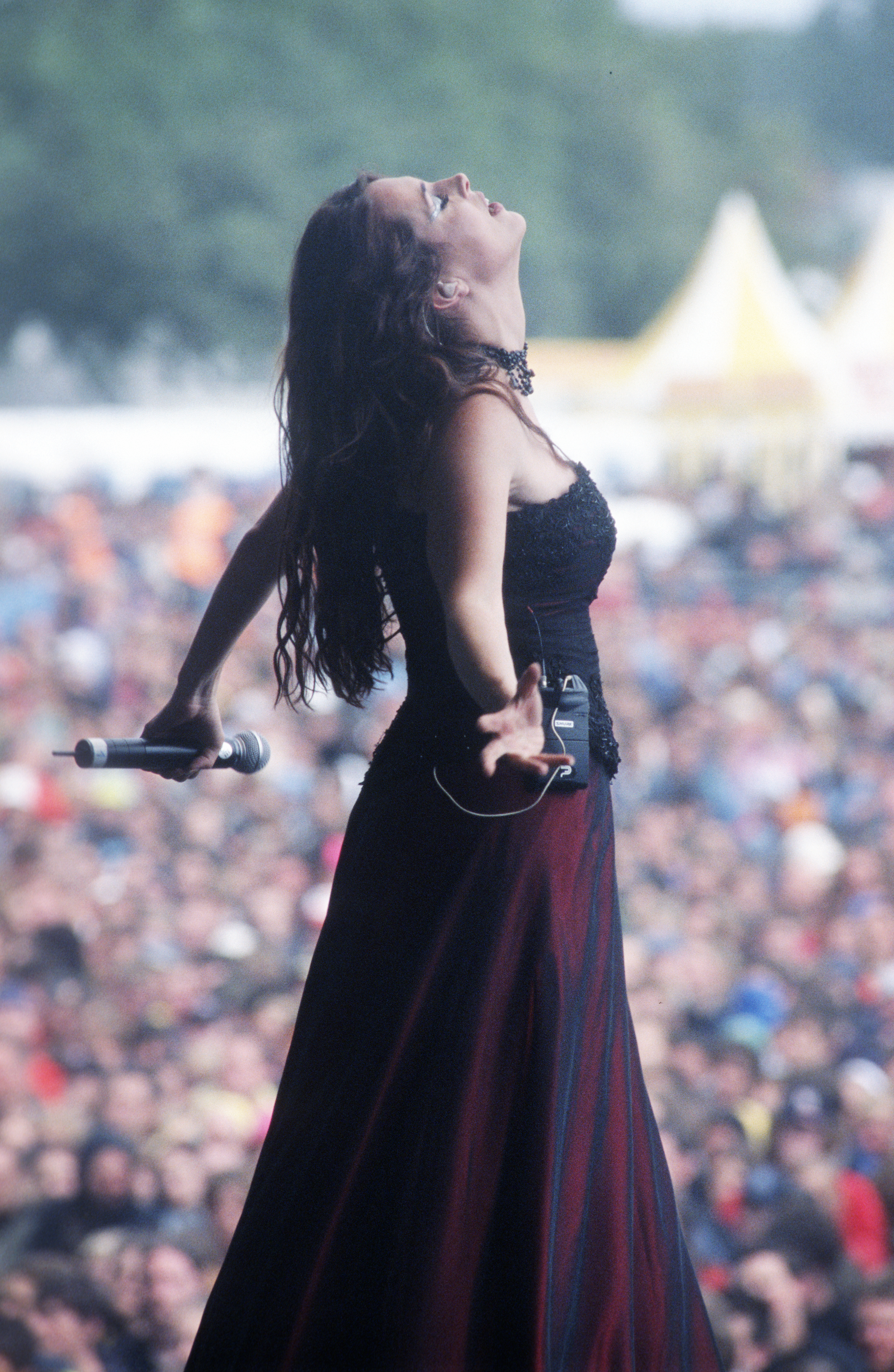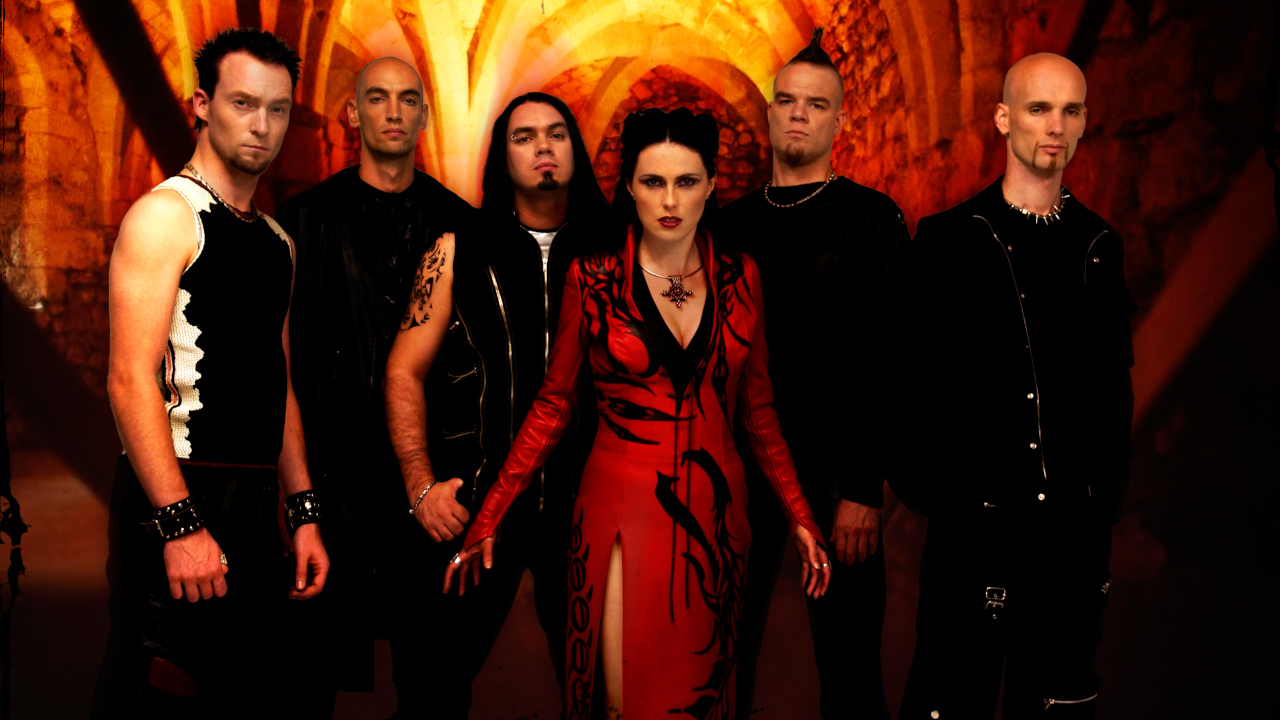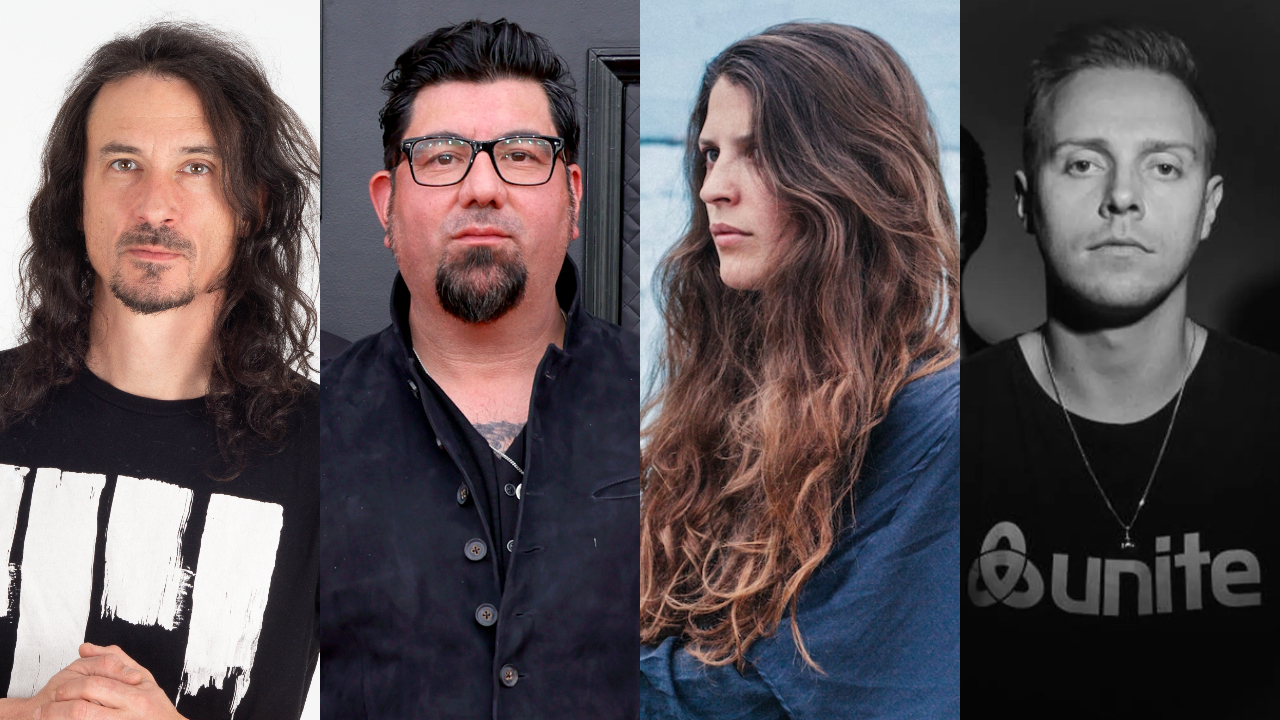“We were never meant to be a professional band...it’s like, ‘Oh my God, what have I done?'" A politician's assassination, a motorbike ride and a gothic Western: the story of the song that crowned one of Europe's most unlikely star bands
Within Temptation had a breakthrough hit with Angels - even if they never planned it

By the time Within Temptation released The Silent Force in 2004, they were shaping up as one of metal’s great new hopes. The Dutch band’s first two albums, 1997’s doomy, gothic-leaning Enter and 2000’s fantastical Mother Earth, had helped put symphonic metal on the map, but it was their third album that really grabbed people’s attention.
The Silent Force was a weightier, darker collection than its predecessors. Landing just a few months after Once, Nightwish’s genre-defining statement, that year saw the two bands stepping forward as the figureheads for a rising scene that was becoming a global commercial force.
The Silent Force’s first two singles, Stand My Ground and Memories, had been big hits across mainland Europe, but when the band saw how fervently the crowd at live shows reacted to Angels, they decided to release it as the album’s third single. Elegantly bridging the ornate gloom of the band’s early sound, the Celtic-infused sparkle of Mother Earth’s burgeoning symphonic drama, and the arena-filling bombast that would follow, the song would play a significant role in Within Temptation’s ascendancy. Today it stands as one of their most enduring anthems.
“Everyone has their own interpretation of the lyrics,” says vocalist Sharon den Adel of Angels. “It holds such a meaning for so many people in many ways. It’s a song that people love.”
The period leading up to The Silent Force was defined by turmoil and change. Following the departure of keyboardist Martijn Westerholt, who’d left in 2001, Within Temptation were getting to grips with a new line-up, which included guitarist Ruud Jolie and Martijn Spierenburg on keyboards. They had also moved labels, leaving the small Dutch independent DSFA Records and signing with German label GUN Records, with the hope that the latter could promote them across Europe on a grander scale.
That upheaval wasn’t confined to the band. The Netherlands itself had been in turmoil since the 2002 assassination of right-wing politician Pim Fortuyn, who’d been shot and killed by a political activist who disagreed with his anti-Muslim views. The incident had stunned the nation at the time, and its aftershocks were still being felt when Within Temptation entered the studio in summer 2004 to record the album.
“There was a lot of commotion in our country at that moment,” recalls Sharon. “We’ve always been very engaged with politics, although you don’t hear it much in our music. We did not agree with [Fortuyn], and we were worried about the future… that shines through on this album.”
Sign up below to get the latest from Metal Hammer, plus exclusive special offers, direct to your inbox!

The band shut themselves away from the world during the eight-week recording session, holing up in a studio on the industrial outskirts of Rotterdam. Every day they would arrive at 9am and not leave until 11pm. “Everything in the studio was closed; there was only a canteen with a little bit of light coming in,” remembers Sharon. “The fact we were in a very dark studio made us feel very gloomy.”
The album marked the first time the band had worked with producer Daniel Gibson, who has produced each of the band’s albums ever since. “He taught us not to sit inside all day,” laughs Sharon. “He’s like, ‘Guys, we have to go for lunch and see some daylight!’”
The success of Mother Earth meant that the band could do things differently this time around, pushing their symphonic inclinations to the forefront. Within Temptation had flirted with symphonic elements before: they’d used computerised orchestral sounds on both Mother Earth and Enter, and they’d worked with a small choir on the former, too. However, GUN Records were so impressed by the band’s growth that they splashed the cash, and forked out for a real Russian orchestra to play on the new material.
“The palette of colours we had to play with became bigger,” remembers Sharon. “We’ve always loved heavy music, but we also loved the soundtracks of epic movies like Braveheart and Gladiator. It had always been our intention to have this sound within our music – this was the first time we had the budget to do it!”
Of course, making a record in the mid-00s with an orchestra based on the other side of a continent was not without challenges. “We were close to Rotterdam, and they were in Moscow,” Sharon says. “Files were sent online but this was back in the day, and it took ages and the computer would crash. Then we said, ‘We want to change this’, and had to go back with a load of files again.”
Angels encapsulated their growing ambition perfectly. Starting with a fragile falsetto from Sharon, it built into an emotional, symphonic anthem, laced with bittersweet venom: ‘You took my heart, deceived me right from the start / You showed me dreams, I wished they would turn into real / You broke a promise, and made me realise, it was all just a lie.’
Fans have spent years dissecting its lyrics of betrayal, but Sharon reveals the band wrote the track to vent about frustrations with their original label, DSFA Records, that had been bubbling to the surface.
“Although we mostly work with metaphors in our music, there was a lot of things that were influenced by politics and our personal lives on that album,” she explains. “Angels is about heroes never coming with a cape and bad guys never coming with the striped shirt, like they’re supposed to be in prison. You have people that you trust and you finally find out they’re not that trustworthy.”
The band’s success, she says, had been a welcome surprise, but it had left them vulnerable. “We were never meant to be a professional band,” she explains. “The thing about that is then you don’t take contracts so seriously. You say, ‘OK, I’ll sign whatever as long as I can make an album!’ You never expect it to become a success, then things start to change and it’s like, ‘Oh my God, what have I done?’ I didn’t have a clue what I was doing. Even though we had lawyers and stuff involved, they were not specialised in music, so it was our own fault in a way.”

The video for Angels represented a new look for the band. Shot in a traditional Spanish mansion in Malaga, it was a visual step out from the shadows. “It was an excuse to do a warm video!” laughs Sharon. “Every time we made a video before, we were standing in the cold, in the rain! For Stand My Ground, we were on the top of a building in Berlin in the middle of the night. We were like, ‘Angels is going to be in the sunshine!’”
The video was also Sharon’s first time on a motorcycle, zipping down dusty roads clinging onto drummer Stephen van Haestregt for dear life. “He was always on motorbikes,” says Sharon. “He was used to it and was like, ‘I’m always in the back of the video clips and now I’m in front. I get to be a cool guy!’”
However, the darkness that had hung over the sessions for The Silent Force carried over into the concept for the video. Together with director Oliver Sommer, the band wrote the treatment for the shoot, which featured Sharon as a fallen angel, kidnapped by a demonic priest-cum-serial killer, played by an actor who had appeared as an extra in Sergio Leone’s Spaghetti Western classic, The Good, The Bad And The Ugly. With spirits rising from the grave and Sharon finally destroying her nemesis while sporting a pair of white angel wings, it’s a gothic-western fantasy that perfectly encapsulates the poignant beauty of the song.
Released in November 2004, The Silent Force immediately pushed Within Temptation to new heights, going gold only one week after its release in the Netherlands, Belgium and Finland. It also helped them continue what would become a record-equalling four-year streak as the Dutch band to have sold the most records outside their homeland in a calendar year - a feat recognised by a string of Buma awards.
They had played their first UK show, a sold-out gig at London’s Scala, that September, but the real payoff would come a year after the album’s release, as the band headlined Bloodstock Festival for the first time (they would triumphantly return to headline again 10 years later).
“You could feel something was changing through interviews, and we were playing at later times at festivals,” Sharon remembers. Not that there was a handbook for their burgeoning success. “There was no one else to guide us outside of the Netherlands. We had to do things on our own and pioneer a bit. There weren’t many other bands we could ask, ‘How do you do that? What’s your experience?’ For us it was new.”
Still, the band who had begun as a casual hobby had become their homeland’s prime musical export. And The Silent Force, and Angels in particular, served notice of their impending popularity outside of the Netherlands, helping transform them into one of symphonic metal’s biggest success stories.
“With The Silent Force, people really knew who we were,” says Sharon. “We stepped up a level with everything. It was the moment we became who we are today.”
Danniii Leivers writes for Classic Rock, Metal Hammer, Prog, The Guardian, NME, Alternative Press, Rock Sound, The Line Of Best Fit and more. She loves the 90s, and is happy where the sea is bluest.
You must confirm your public display name before commenting
Please logout and then login again, you will then be prompted to enter your display name.


